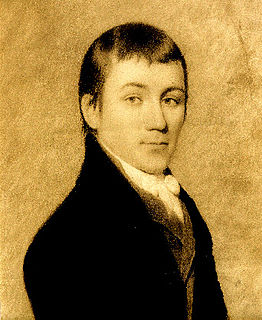Top 6 Quotes & Sayings by Charles Brockden Brown
Explore popular quotes and sayings by an American novelist Charles Brockden Brown.
Last updated on December 19, 2024.
All men are, at times, influenced by inexplicable sentiments. Ideas haunt them in spite of all their efforts to discard them. Prepossessions are entertained, for which their reason is unable to discover any adequate cause. The strength of a belief, when it is destitute of any rational foundation, seems, of itself, to furnish a new ground for credulity. We first admit a powerful persuasion, and then, from reflecting on the insufficiency of the ground on which it is built, instead of being prompted to dismiss it, we become more forcibly attached to it.























